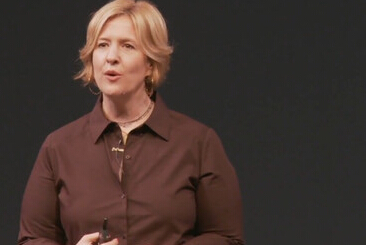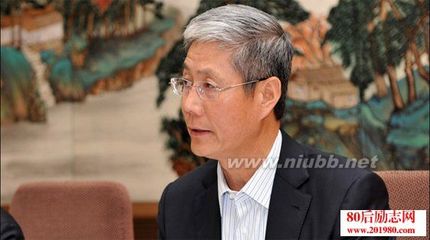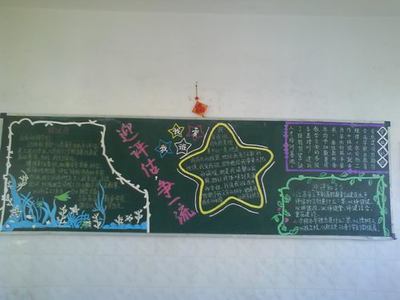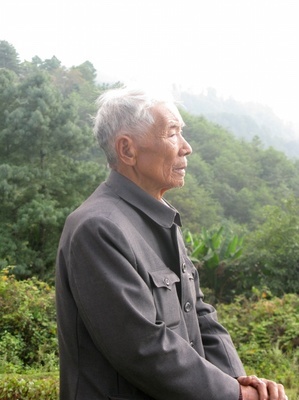Good morning, everyone. It’s an honor to be here to introduceone of the traditional cultures in my hometown, Shandong Province.My speech today is about Confucius Culture.
Confucius was born in Qufu city, located in the southwest ofShangdong province. He lived between 551 and 479 BC during the lateyears of the Spring and Autumn Period of China. He was a greatthinker, educator and statesman as well as one of the most learntpeople at that time. Later generations honored him as “the sage ofsages” and “the teacher of all ages”.
Confucius was the first person in Chinese history to beginprivate education, bringing the access to knowledge learning, aprivilege previously enjoyed by aristocrats, to the general public.The principle of “providing education for all people withoutdiscrimination” first proposed by him advocated that anyone, richor poor, was entitled to education from him. Confucius adopted theteaching method of “educating someone according to his naturalability” and “heuristic education”. Meanwhile, he was tireless inteaching others and fostered good learning habits in his students.It is said that Confucius educated a total of 3,000 disciples, 72of whom were outstanding ones. Therefore, the rich traditionalChinese culture have been promoted and inherited.
Confucius was the founder of Confucianism, a school of moraldoctrine that encourages “justice” and “peace”. Confucianism had akey influence on later generations and became the core of Chinesefeudal culture, representing the Chinese cultural spirit.
Lunyu, also known as the Analects of Confucius, is therepresentative work of Confucianism . The Analects are considered arecord of the words and acts of the Chinese thinker and philosopherConfucius and his disciples, as well as the discussions they held,which continues to have a tremendous influence on Chinese and EastAsian thought and values today.
As an ancient sage, Confucius is among the earliest and greatesteducationists in China. In all his life, he has made a series ofexcellent comments on study.The Analects ofConfuciusrecords many of his important remarks inthis respect, which demonstrate his outstanding wisdom.
With regard to the fun of learning, Confucius said, "Havingstudied, and then repeatedly applying what you have learned - isthis not a source of pleasure? To have friends come from afar - isthis not a source of enjoyment?
With regard to the learning attitude, he encouraged his studentsto be open-minded, curious, and ready to ask everyone questions oneverything. Confucius said, “ When strolling inthe company of just two other people, I am bound to find one as myteacher. Identifying their strengths, I follow them, andidentifying their weaknesses, I reform myself accordingly."
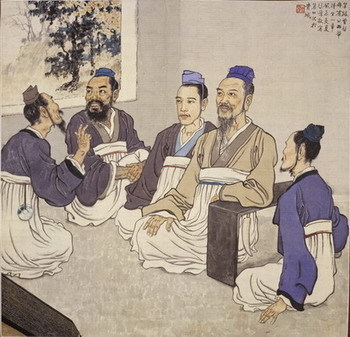
With regard to the learning methods, he encouraged his studentsto learn from those inferior to them either in knowledge or instatus without feeling ashamed and to continue studying withoutfeeling bored. He encouraged teachers to instruct others withoutgrowing weary and ponder without feeling tired. Confucius said,“Learning without thinking leads to confusion, while thinkingwithout learning ends in problems unsolved.”
In honor of Confucius, Confucius memorial ceremony is solemnlyheld every year in the Confucian Temple, one of the famous sites inhis hometown, Qufu, in the form of music, singing, dancing andrite, with the latest one as the core.
The World Heritage Committee honored Confucius as “a greatphilosopher, statesman and educator of the Spring and Autumn Periodof China during the 6th and 5th century BC”. Nowadays, more andmore people around the world are beginning to understand Confuciusand the culture of Confucianism, with the establishment of oneConfucius institute after another.
If you want to find out more about Confucius and the culturalcharm of his hometown, welcome to Shandong Province. I am waitinghere for you!
That’s all. Thank you.
1. the Analects
n. 论语
the Analects: 字 | 论 | 书名
2. Confucius [kən'fju:ʃjəs]
n. 孔子(中国哲学家,教育家)
Confucius: 决战春秋 | 孔子之决战春秋 | 即孔子
3. statesman ['steɪtsmən]
n. 政治家;国务活动家
statesman: 国务活动家 | 政客 | 政治家篇
4. later generation
后代
5. sage [seɪdʒ]
n. 圣人;贤人;哲人
adj. 明智的;贤明的;审慎的
n. (Sage)人名;(日)三下(姓);(英)塞奇;(意)萨杰;(德)扎格;(法)萨热
SAGE: 基因表达系列分析(Serial Analysis Of Gene Expression)
6. privilege ['prɪvɪlɪdʒ]
n. 特权;优待;基本权利
vt. 给与…特权;特免
privilege: 优惠 | 好处 | 享受特权
7. previously ['priviəsli]
adv. 以前;预先;仓促地
Previously: 先前 | 以前 | 早先
8. aristocrat ['ærɪstəkræt; ə'rɪst-]
n. 贵族
aristocrat: 艺术家 | 平民 | 庶民
9. discrimination [dɪ,skrɪmɪ'neɪʃ(ə)n]
n. 歧视;区别,辨别;识别力
discrimination: 辨别力 | 区别 | 识别
10. proposed [prəu'pəuzd]
v. 提议;计划(propose的过去式和过去分词)
adj. 被提议的;所推荐的
proposed: 被提议的 | 提出 | 拟建
11. advocate ['ædvəkeɪt]
vt. 提倡,主张,拥护
n. 提倡者;支持者;律师
12. entitled [in'taitld]
v. 给…权利;给…定书名;授…以荣誉(entitle的过去分词);adj. 有资格的;给与名称的
13. heuristic [hjʊ'rɪstɪk]
adj. 启发式的;探索的;
n. 启发式教育法
14. tireless ['taɪəlɪs]
adj. 不知疲倦的;不疲劳的
15. foster ['fɒstə]
vt. 培养;养育,抚育;抱(希望等)
adj. 收养的,养育的
n. (Foster)人名;(英、捷、意、葡、法、德、俄、西)福斯特
foster: 养育 | 培养 | 佛斯特
16. disciples
n. 门徒(disciple的复数)
v. 教育(disciple的第三人称单数形式)
disciples: 众人 | 众子弟 | 门徒
17. promote [prə'mot]
vt. 促进;提升;推销;发扬;
vi. 成为王后或其他大于卒的子
18. inherited [ɪn'herɪtɪd]
v. 继承;经遗传而得(inherit的过去分词)
adj. 遗传的;继承权的;通过继承得到的
inherited: 继承的 | 是否继承 | 继承权的
19. Confucianism [kən'fju:ʃjənizəm]
n. 孔子学说;儒家思想
Confucianism: 儒教 | 儒家学说 | 孔教
20. moral ['mɒr(ə)l]
n. 道德;寓意
adj. 道德的;精神上的;品性端正的
n. (Moral)人名;(德、法、西、葡、土)莫拉尔
MORAL: 摩瑞尔 | 道德上的 | 寓意
21. doctrine ['dɒktrɪn]
n. 主义;学说;教义;信条
doctrine: 原则 | 学术或宗教教义 | 教旨
22. Core [kɔr]
n. 核心;要点;果心;[计] 磁心;
vt. 挖...的核;
n. (Core)人名;(英)科尔;(西、意)科雷
23. feudal ['fjuːd(ə)l]
adj. 封建制度的;领地的;世仇的
feudal: 封建制度的 | 封地的 | 封建思想
24. analects ['ænəlekts]
n. 文选;论集
Analects: 论语 | 文选 | 论集
25. philosopher [fɪ'lɒsəfə]
n. 哲学家;哲人
philosopher: 哲人 | 思想家 | 贤者
26. tremendous [trɪ'mendəs]
adj. 极大的,巨大的;惊人的
tremendous: 极大的 | 高速的 | 高处的
27. in this respect
在这方面
in this respect: 在这方面 | 在这点上 | 为此
28. demonstrate ['demənstreɪt]
vt. 证明;展示;论证
vi. 示威
Demonstrate: 演示 | 彰显 | 说明
29. wisdom ['wɪzdəm]
n. 智慧,才智;明智;学识;至理名言
n. (Wisdom)人名;(英)威兹德姆
Wisdom: 睿智 | 名言 | 明智
30. strolling ['strəuliŋ]
adj. 巡回演出的;消闲散步的
v. 散步(stroll的ing形式);闲逛
Strolling: 闲庭信步 | 闲逛 | 消闲散步
31. bound to
一定会;束缚于
bound to: 绑定到 | 开往 | 一定会
32. identifying
n. 识别,标识;标识关系
v. 识别(identify的现在分词)
33. reform [rɪ'fɔːm]
vi. 重组;改过
vt. 改革,革新;重新组成
n. 改革,改良;改正
adj. 改革的;改革教会的
reform: 改造 | 变革 | 改进
34. inferior [ɪn'fɪərɪə]
n. 下级;次品
adj. 差的;自卑的;下级的,下等的
Inferior: 劣势 | 逊于 | 低人一等的
35. status ['steɪtəs]
n. 地位;状态;情形;重要身份
status: 身份 | 订座情况 | 情形
36. weary ['wɪərɪ]
adj. 疲倦的;厌烦的;令人厌烦的
vi. 疲倦;厌烦
vt. 使疲倦;使厌烦
weary: 疲倦的 | 厌倦 | 疲劳
37. ponder ['pɒndə]
vi. 考虑;沉思
vt. 仔细考虑;衡量
n. (Ponder)人名;(英)庞德
Ponder: 沉思 | 考虑 | 思索
38. confusion [kən'fjuːʒ(ə)n]
n. 混淆,混乱;困惑
confusion: 混淆 | 困惑 | 骚乱
39. memorial [mə'mɔːrɪəl]
adj. 记忆的;纪念的,追悼的
n. 纪念碑,纪念馆;纪念仪式;纪念物
memorial: 纪念碑 | 纪念的 | 纪念物
40. solemnly
adv. 庄严地;严肃地
solemnly: 严肃地 | 郑重其事 | 庄严地
41. rite [raɪt]
n. 仪式;惯例,习俗;典礼
n. (Rite)人名;(西)里特
rite: 仪式 | 礼仪 | 爱色丽
42. World Heritage Committee
世界遗产委员会
World Heritage Committee: 遗产委员会
43. heritage ['herɪtɪdʒ]
n. 遗产;传统;继承物;继承权
n. (Heritage)人名;(英)赫里蒂奇
Heritage: 文物 | 文化遗产 | 继承物
44. establishment [ɪ'stæblɪʃm(ə)nt; e-]
n. 确立,制定;公司;设施
 爱华网
爱华网